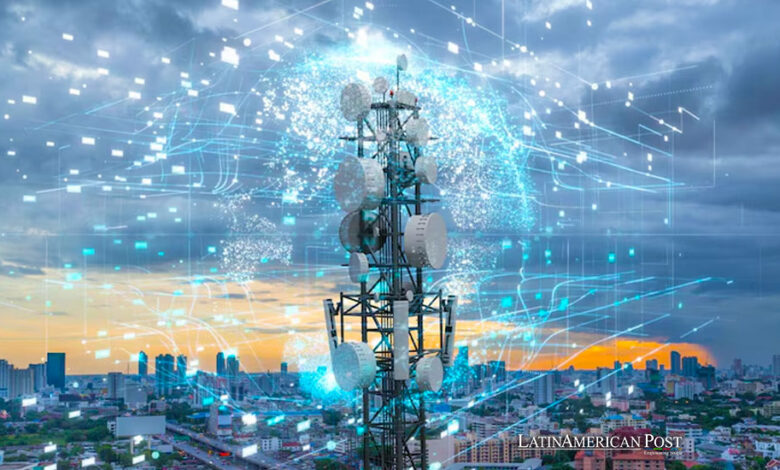5G Development in Costa Rica: A Geopolitical Tech Tug-of-War

Costa Rica’s 5G network development has sparked a diplomatic spat between the U.S. and China, highlighting a global struggle over telecommunications dominance and cybersecurity, with far-reaching implications for Latin American technology and sovereignty.
The development of the fifth-generation (5G) telecommunications network in Costa Rica has become a battleground for geopolitical influence between the United States and China, underscoring the broader struggle over tech supremacy and cybersecurity in Latin America. This conflict, recently sparked by public exchanges between high-ranking officials from both countries, reflects the deepening rift in international relations over technological advancement and data security.
Chinese Response to U.S. Concerns
The Chinese Embassy in Costa Rica labeled as “pure lies” the statements made by Anne Neuberger, U.S. Deputy National Security Advisor for Cyber and Emerging Technology, and Nathaniel Fick, U.S. Ambassador-at-Large for Cyberspace and Digital Policy. These U.S. officials had raised concerns over China’s technological practices and cybersecurity measures. The embassy defended Chinese telecom companies’ global operations, asserting adherence to market laws and fair competition, and denied any government directive to gather user data or intellectual property from other nations.
This controversy intensified in August 2023 when Costa Rican President Rodrigo Chaves decreed a regulation requiring 5G contract contenders to hail from countries that are signatories of the Budapest Convention on Cybercrime. This stipulation disqualified China, a non-signatory, and its telecom giants like Huawei from bidding on 5G projects in Costa Rica.
Suspension of Regulation
The suspension of this regulation by the Administrative Controversial Tribunal, pending a thorough examination, adds another layer to the unfolding drama. Meanwhile, U.S.-Costa Rica relations have strengthened, particularly cybersecurity, as marked by a $25 million cooperation announcement, training programs, and digital infrastructure projects.
Laura Richardson, commander of the United States Southern Command, frequents Costa Rica to highlight the deepening security cooperation, especially in cybersecurity and combating organized crime. This partnership contrasts with the Costa Rican government’s stance on 5G technology and its national security implications, particularly concerning China.
President Chaves and his Minister of Science, Innovation, Technology, and Telecommunications, Paula Bogantes, have vigorously defended the 5G regulation, framing it as a national security imperative. Chaves’s remarks on China’s legal system and its alleged compulsion for companies to surrender information to the state reflect the security concerns driving Costa Rica’s 5G policy.
The debate around the Budapest Convention, highlighted by Huawei and the Chinese Embassy, suggests a divergence in understanding between technical cybersecurity issues and the legal mechanisms to combat cybercrime. This discrepancy underscores the complexity of international tech diplomacy, where legal, technical, and political dimensions intersect.
The 5G controversy in Costa Rica is emblematic of the more considerable tensions in Latin America over technological sovereignty, foreign influence, and cybersecurity. Countries are navigating similar challenges, balancing economic and technological opportunities with national security and diplomatic considerations.
Latin American nations striving for technological advancement and digital transformation must negotiate their positions within the global power dynamics of the U.S. and China. The Costa Rican case illustrates these countries’ difficult choices in aligning with tech superpowers, each offering distinct technological, economic, and strategic benefits and drawbacks.
The U.S.-China tech rivalry in Latin America is not just about 5G but encompasses a range of issues from infrastructure development to data sovereignty and cyber governance. This rivalry has implications for regional integration, economic growth, and the geopolitical alignment of Latin American countries.
Costa Rica’s Role in Global Dynamics
Costa Rica’s 5G saga reflects broader regional trends where nations assert their technological and political agency amidst global power shifts. The country’s approach to 5G, emphasizing cybersecurity and national interests, resonates with broader Latin American efforts to chart independent paths in technology policy and international diplomacy.
Also read: Costa Rica’s Health Sector Boosts Cybersecurity
The 5G development controversy in Costa Rica serves as a microcosm of the ongoing global tug-of-war over technological dominance and cybersecurity. It highlights the strategic maneuvering between the U.S. and China. It underscores the complex landscape Latin American countries navigate in the digital age, balancing technological advancement, national security, and international relations.




